KGB ‘one punch’ tactic killed Russian opposition leader Alexei Navalny, human rights activist claims
A “hallmark” tactic used by the KGB has been revealed as the possible cause of Russian opposition leader Alexei Navalny’s death while in prison.
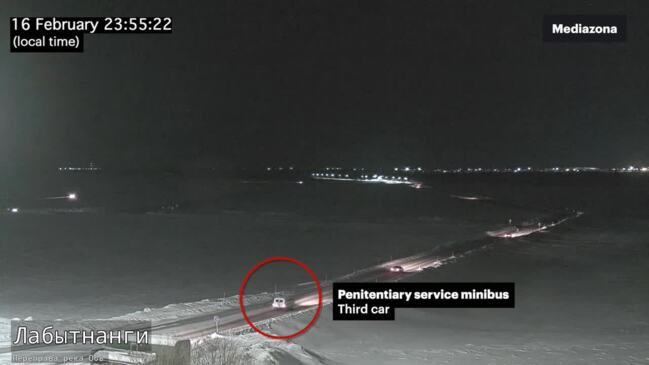
Fresh details has surfaced revealing a possible cause of Russian opposition leader Alexei Navalny’s death while in prison.
Mr Navalny was killed with one punch to the heart after being forced to spend hours in freezing conditions, Russian-born human rights activist Vladimir Osechkin has claimed.
The 47-year-old lawyer was found dead at a remote Arctic prison colony on Friday (local time), with Russia claiming he died of “sudden death syndrome”.
It has since been reported that his body was found covered in bruises, which Mr Osechkin told The Times was consistent with the “one-punch” technique previously taught to KGB.
He also claimed Mr Navalny was forced to spend more than two and a half hours outdoors in open-air solitary confinement where temperatures were as low as -27C.
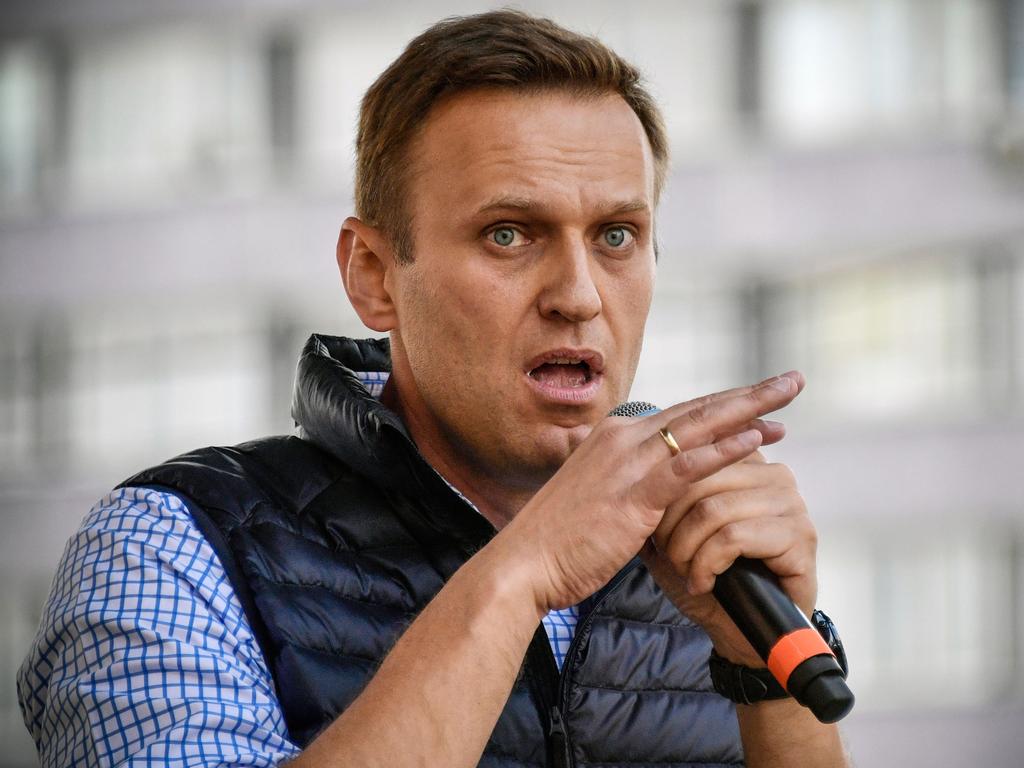
Mr Osechekin said his source was working in prison FKY IK-3, nicknamed “Polar Wolf” in northern Siberia, where the former opposition leader was killed.
“I think that they first destroyed his body by keeping him out in the cold for a long time and slowing the blood circulation down to a minimum,” he said.
“And then it becomes very easy to kill someone, within seconds, if the operative has some experience in this.
“It is an old method of the KGB’s special forces divisions. They trained their operatives to kill a man with one punch in the heart, in the centre of the body. It was a hallmark of the KGB.”
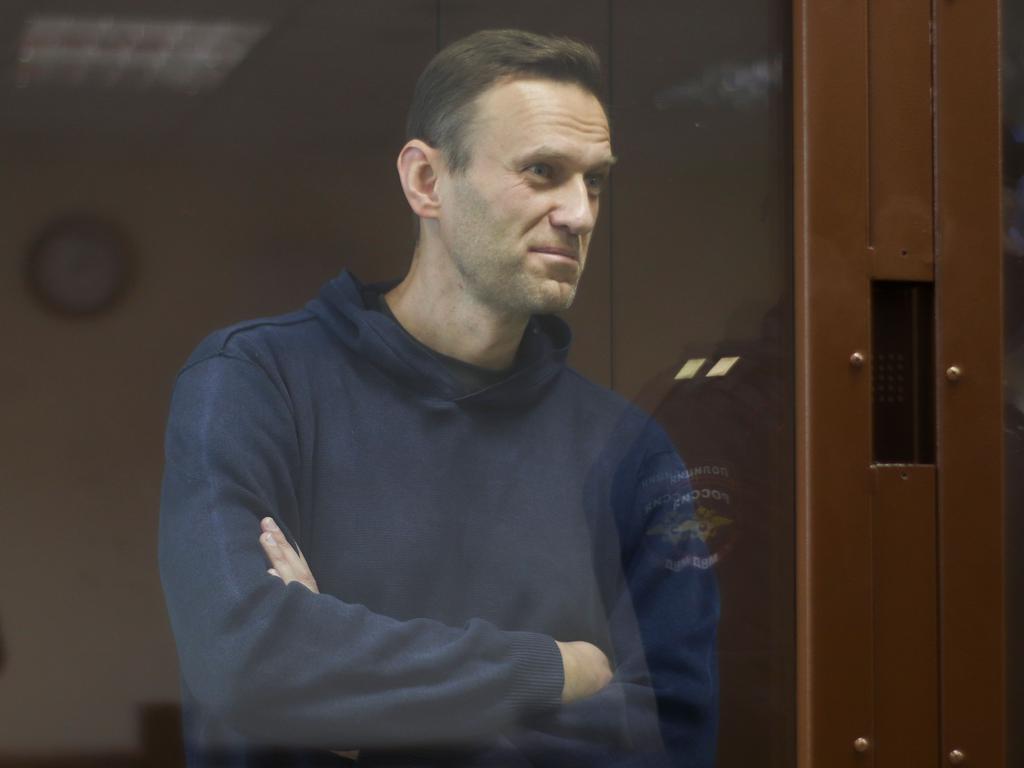
The Putin critic was jailed in 2021. Late last year, he was moved to a remote Arctic prison colony nicknamed
Mr Navalny said in January that his daily routine included prison walks in freezing temperatures.
Since being jailed, he spent more than 300 days in solitary confinement, where prison authorities kept him over alleged minor protocol infringements.
Russia’s Federal Penitentiary Service initially said Mr Navalny had “felt unwell” after taking a walk in the prison, “almost immediately losing consciousness”, and that medical staff were unable to save him.
A state-controlled channel on Telegram claimed the same day that he had died of a blood clot.
On Saturday, Navalny’s mother and his lawyer were informed he had died of “sudden death syndrome”.
ELON MUSK’S X BLOCKED NAVALNY’S WIDOW
The social media site X briefly blocked the account of Yulia Navalnaya just one day after she created it following the death of her husband, Russian opposition leader Alexei Navalny.
Ms Navalnaya, who for years said she did not see herself as a political figure, has vowed to continue her husband’s work and on Monday claimed Russian President Vladimir Putin had killed him, in a video message shared on X, formerly Twitter.
The @Yulia_Navalnaya account page was accessible again on Tuesday, around 50 minutes after it was suspended without explanation.
The page had included a link to the site’s rules of use but did not specify the reason the account was suspended.
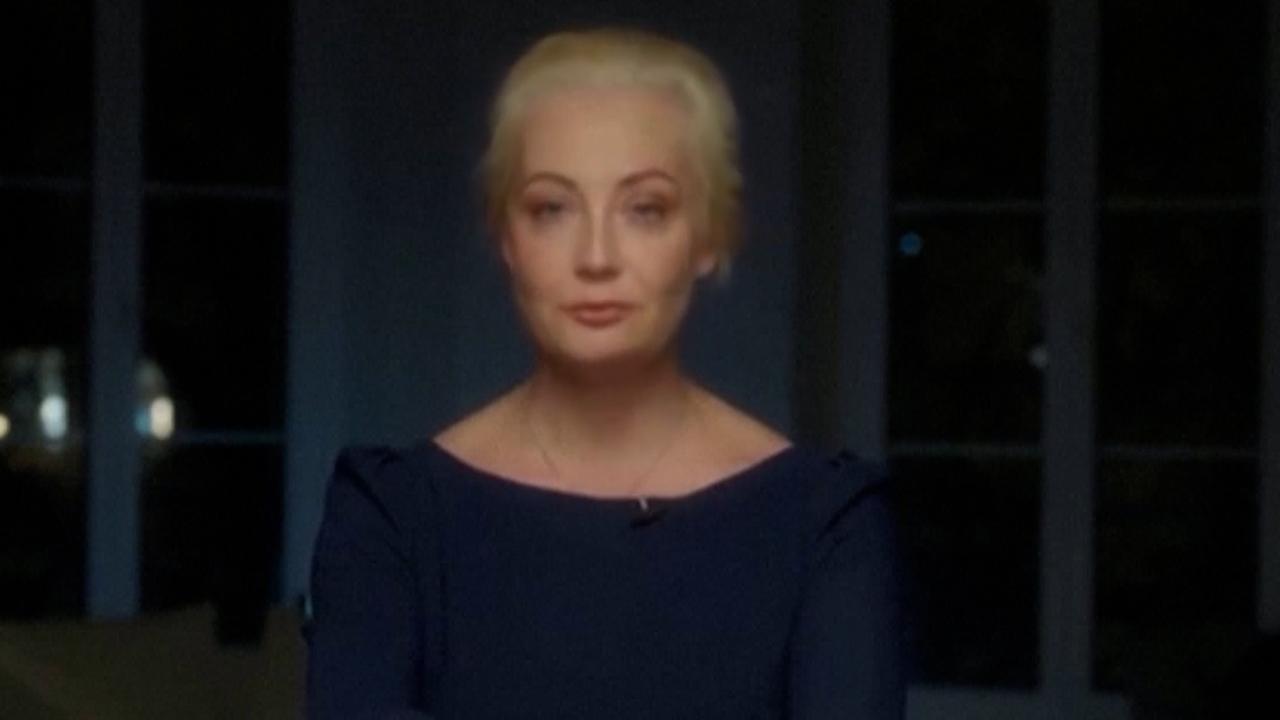
The rules state accounts can be suspended for issues ranging from safety and privacy concerns, like hate speech or sharing private information, to authenticity and verification, such as impersonating people online.
Ms Navalnaya opened the account on Monday. Several of Mr Navalny’s top aides and official accounts verified it was her real account.
On Monday, she posted an emotional video appeal on the platform accusing Mr Putin of killing Mr Navalny and calling on Russians to join her in fighting against the Kremlin.
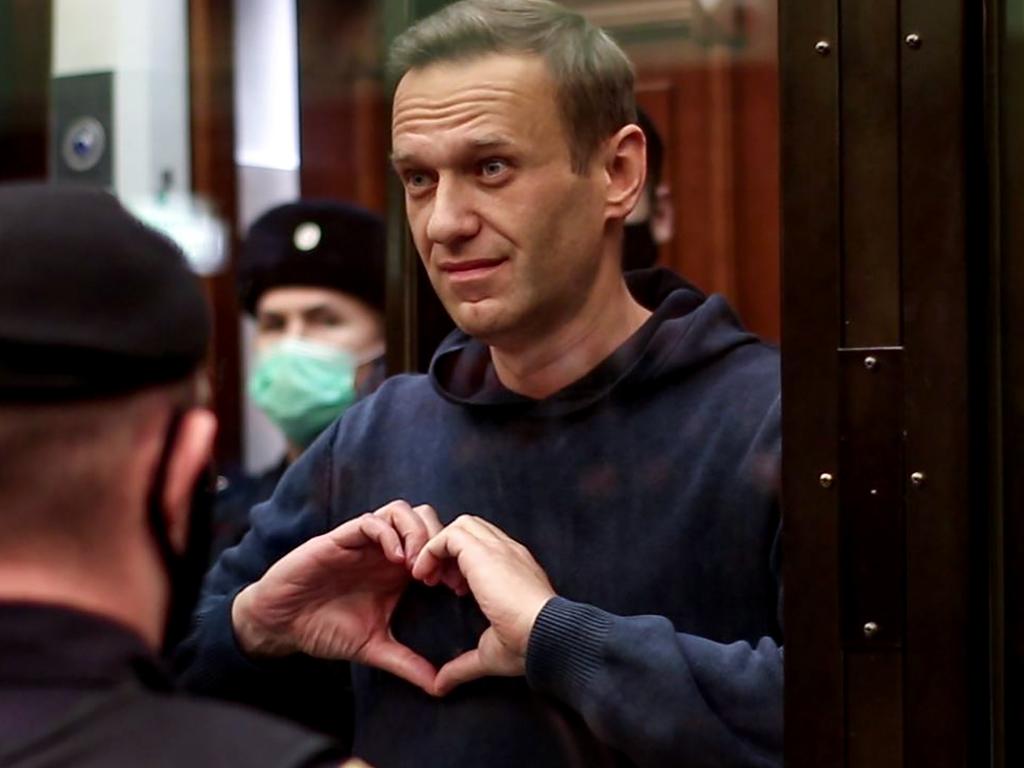
Hours before the suspension she had also posted angry response to Kremlin spokesman Dmitry Peskov after he told reporters her accusations of Mr Putin’s involvement in her husband’s death were “vulgar and unfounded.”
Ms Navalnaya said she did not “give a damn”.
Mr Navalny, Putin’s most vocal critic for the last decade, died last Friday in the Arctic prison colony where he was serving a 19-year sentence widely seen as punishment for campaigning against the Kremlin.
Mr Putin has not publicly commented on his death.
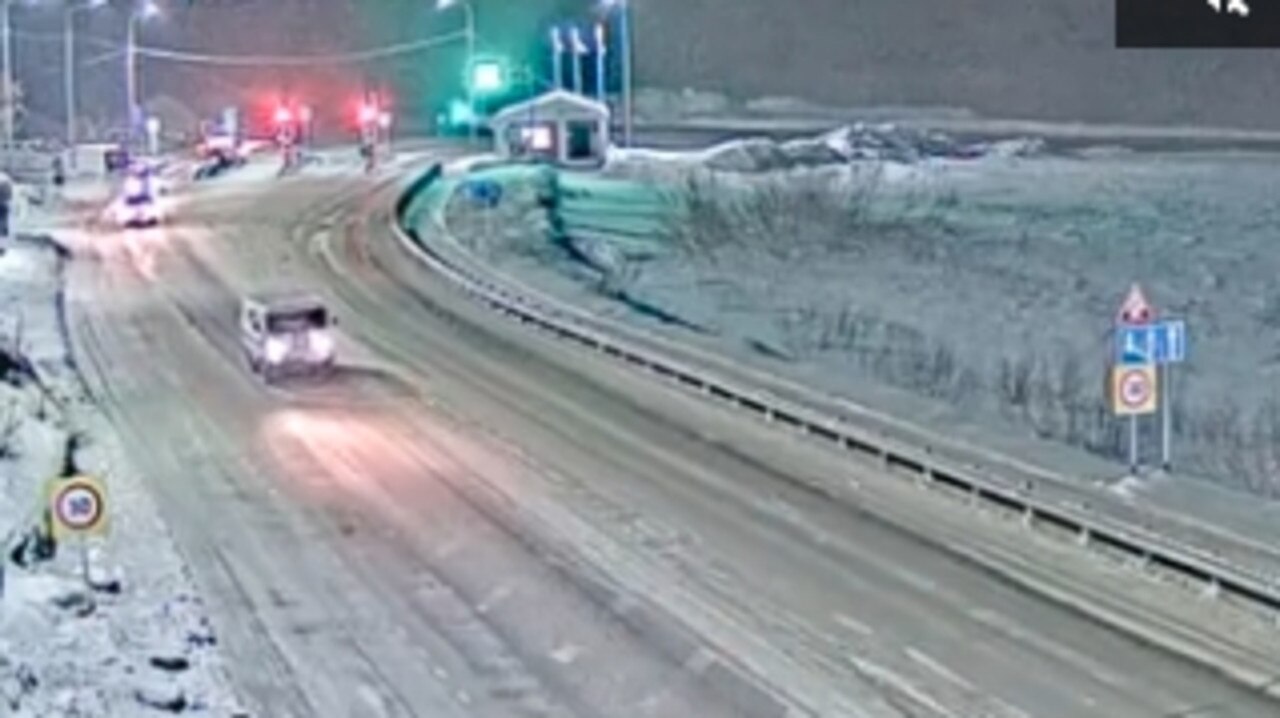
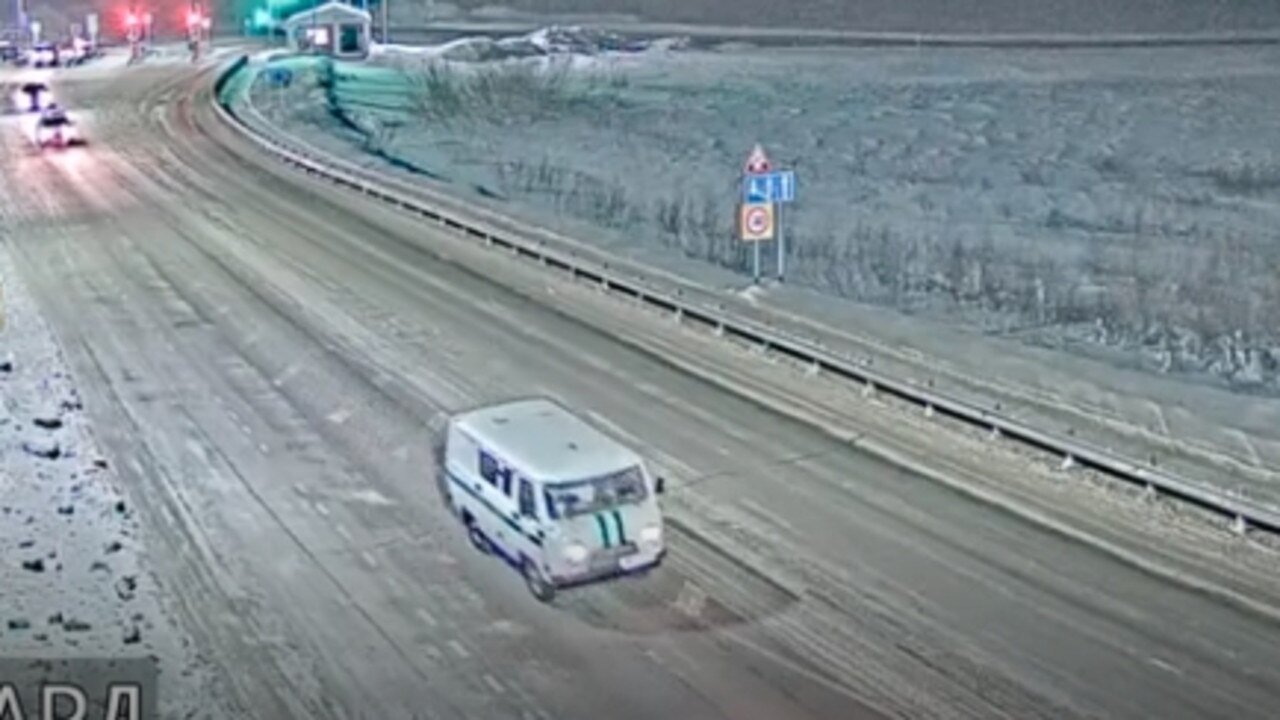
It comes as CCTV footage has captured the moment a midnight motorcade is suspected to have taken Navalny’s corpse out of his Arctic prison, as his family were refused access to his body for the third day.
A white prison van believed to be carrying the corpse was seen in a convoy of prison vehicles and two highway patrol police cars.
The convoy set off from the strict regime colony where Mr Navalny was imprisoned in a temperature of minus 30C on the day of his death.
‘PUTIN KILLED THE FATHER OF MY CHILDREN’
Yulia Navalnaya publicly blamed Vladimir Putin for her husband’s death and accused the Kremlin of hiding her husband’s body to allow traces of poison to disappear.
In a video message Ms Navalnaya, 47, said: “Vladimir Putin killed my husband” as footage emerged of a van thought to be carrying Mr Navalny’s bruised body in a convoy of prison vehicles and two police patrol cars.
The 56-kilometre midnight escort in -30C temperatures began the day it was reported Mr Putin’s fiercest political opponent died in his Arctic prison and continued early on Saturday.
Navalny's widow Yulia:
— Pjotr Sauer (@PjotrSauer) February 19, 2024
"I will continue Alexei Navalny's work. Continue to fight for our country together with you...Against war and corruption...And I urge you to stand beside me."
Yulia that she "knows why Putin killed Alexei" and "will soon tell about it" pic.twitter.com/jBEM5M2faf
The prison van left hours before Mr Navalny’s mother Lyudmila, 69, and lawyer arrived at the jail asking to collect his body.
The motorcade headed to Labytnangi town near the river Ob in Russia before crossing into Salekhard, according to independent news outlet Mediazona.
On Saturday morning, it was feared Mr Navalny’s body had gone missing when it was not at the morgue his mother was sent to by prison staff.
It was later revealed to be at a different morgue, closely guarded by police.
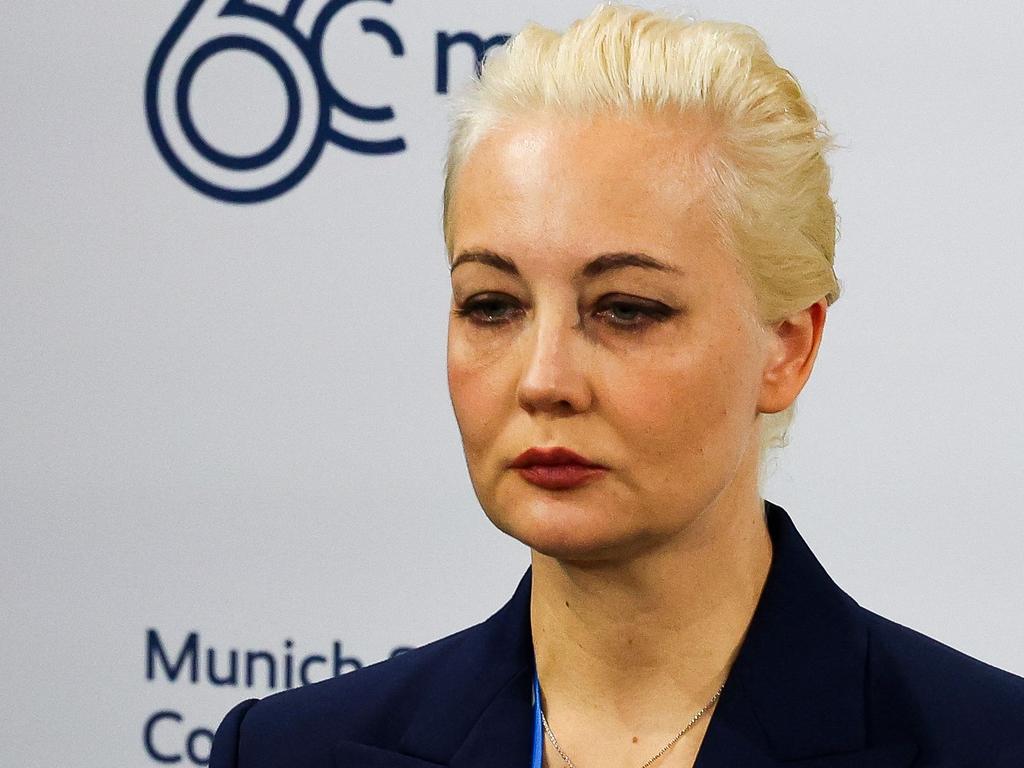
Mr Navalny’s wife said in a video message entitled ‘I will continue the work of Alexei Navalny’ on Monday: “I want to live in a free Russia, I want to build a free Russia”.
Ms Navalnaya accused the Russian authorities of hiding her husband’s body and of waiting for traces of the Novichok nerve agent to disappear from his body.
“Three days ago, Vladimir Putin killed my husband Alexei Navalny. Putin killed the father of my children.
“Putin took away the most precious I had in my life – my most dear and the most loved man.
“But Putin also took Navalny away from you, somewhere in a [penal] colony in the Far North, beyond the Arctic Circle, in eternal winter.
“Putin didn’t just kill a man called Alexei Navalny. Together with him, Putin wanted to kill our hopes, our freedom, our future. To destroy and nullify it.
“The best evidence that Russia can be different, that we are strong, brave, that we believe and desperately fight and want to live differently.”
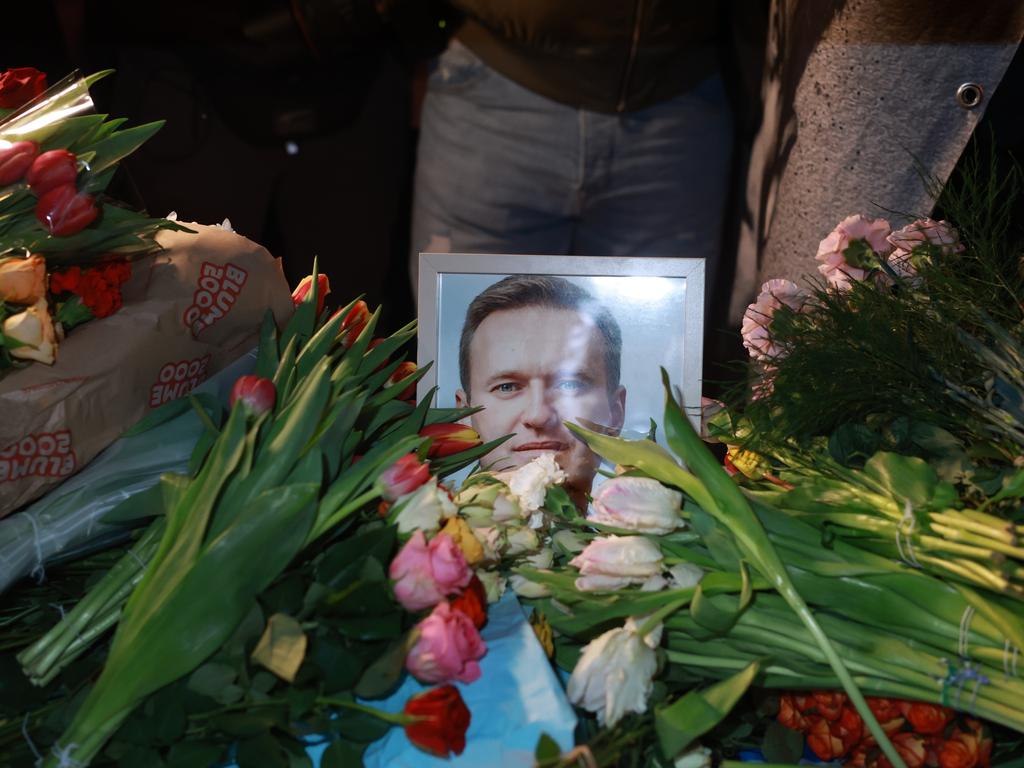
“By killing Alexei, Putin killed half of me – half of my heart and half of my soul,’ Navalnaya said.
“But I still have the other half, and it tells me that I have no right to give up. I will continue the work of Alexei Navalny, continue to fight for our country.”
Calling for support, she went on: “I urge you to stand next to me.
“I ask you to share the rage with me. Rage, anger, hatred towards those who dared to kill our future.”
“I address you with the words of Alexei, which I strongly believe: There’s no shame in doing a little. There is shame in doing nothing. There is shame in allowing yourself to be intimidated.”
Mr Navalny’s body will not be returned to his family for at least another 14 days, CNN reports, citing a post on X from Mr Navalny’s spokesperson, Kira Yarmysh.
The body will be under “some sort of chemical examination” during that period, she said.
ITALY, EU CALL BACK DIPLOMATS
Italy has summoned the Russian ambassador over the death of Russian opposition leader Alexei Navalny, according to a diplomatic source.
Italy became the latest European country to summon a Russia diplomat over the death of Navalny, following Belgium, France, Germany, Poland, and the European Union, whch has summoned its Russian charge d’affaires, Kirill Logvinov, in Brussels.
The EU’s managing director for Eastern Europe, Russia and Central Asia, Michael Siebert, “called upon Russia to allow an independent and transparent international investigation into circumstances of Alexei Navalny’s sudden death”, said a statement from EU’s diplomatic service.
“The EU side conveyed EU’s outrage over the death of the Russian opposition politician Alexei Navalny, for which the ultimate responsibility lies with President Putin and the Russian authorities.”
It “urged Russia to release his body to his family without further delay and allow the family to organise a funeral”.
US TO REVEAL NEW SANCTIONS
The United States will announce new sanctions on Russia on Friday over the death of Mr Navalny, coinciding with the two-year anniversary of Moscow’s invasion of Ukraine, the White House said.
“At President Biden’s direction, we will be announcing a major sanctions package on Friday of this week to hold Russia accountable for what happened to Mr Navalny,” National Security Council spokesman John Kirby told reporters.
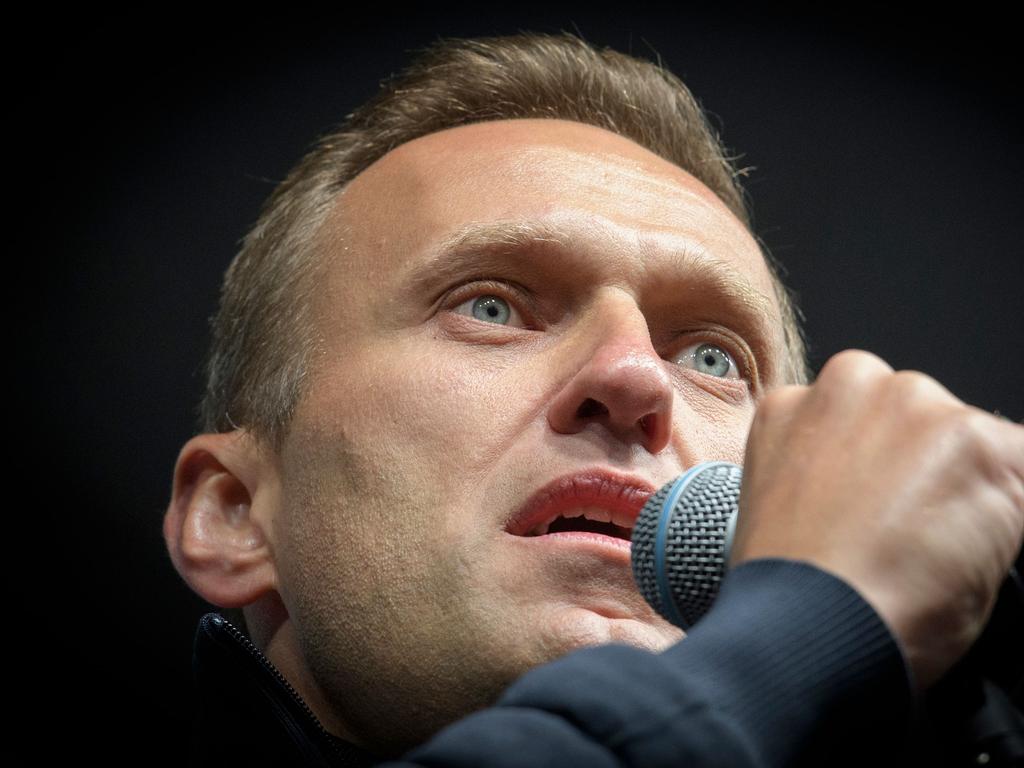
He said the sanctions would also be in response to “all its actions over the course of this vicious and brutal war that has now raged on for two years.”
“Whatever story the Russian government decides to tell the world, it’s clear President Putin and his government are responsible for Mr Navalny’s death,” Mr Kirby said.
“Absent some credible investigation into his death,” Mr Kirby said, “it’s hard to get to a point where we can just take the Russians’ word for it.” “We’re calling for complete transparency by the Russian government for how he died.”
Mr Kirby declined to elaborate on the sanctions ahead of Friday’s announcement.
WHAT IS NOVICHOK NERVE AGENT?
The name Novichok means “newcomer” in Russian, and applies to a group of advanced nerve agents developed by the Soviet Union in the 1970s and 1980s.
They were known as fourth-generation chemical weapons and were developed under a Soviet program codenamed Foliant.
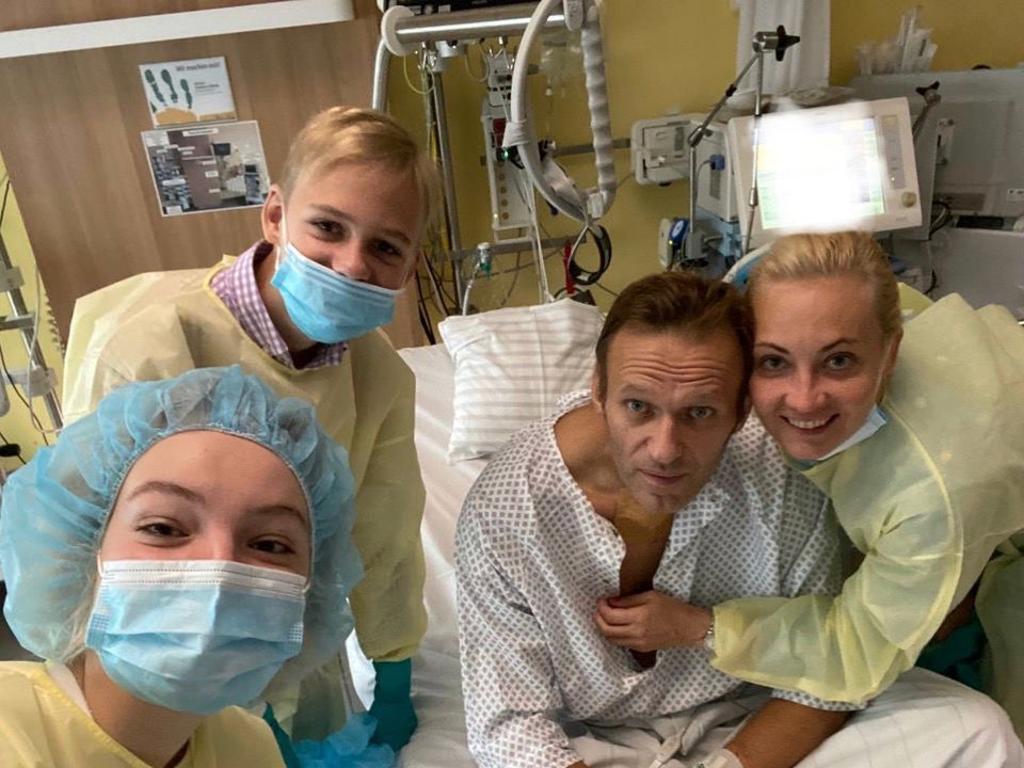
While some Novichok agents are liquids, others are thought to exist in solid form. This means they could be dispersed as an ultrafine powder.
Some of the agents are also reported to be “binary weapons”, meaning the nerve agent is typically stored as two less toxic chemical ingredients that are easier to transport, handle and store. When these are mixed, they react to produce the active toxic agent.
Novichoks were designed to be more toxic than other chemical weapons, so some versions would begin to take effect rapidly – in the order of 30 seconds to two minutes.
The main route of exposure is likely to be through inhalation or ingestion, though they could also be absorbed through the skin.
Symptoms include:
- Brain: Convulsions, loss of consciousness, coma
- Eyes: Pupils constricted
- Lungs: Wheezing, shortness of breath, excessive fluid secretion
- Heart: Initially high blood pressure and raised heart rate. Later low blood pressure and decreased heart rate
- Digestive system: Nausea and vomiting, diarrhoea
- Skin: Profuse sweating
TRUMP REACTS TO NAVALNY DEATH
Former US president and Republican frontrunner for the presidential nomination Donald Trump finally acknowledged Mr Navalny’s death on Tuesday.
He issued a statement that avoided criticism of the Kremlin and instead portrayed the Russian opposition leader’s sudden passing as a sign of a collapsing United States.
“The sudden death of Alexei Navalny has made me more and more aware of what is happening in our country,” Mr Trump said on his Truth Social website.
“It is a slow, steady progression, with crooked, radical left politicians, prosecutors and judges leading us down a path to destruction.”
Mr Trump decried “open borders, rigged elections and grossly unfair courtroom decisions” in the United States, which he called “a nation in decline”
NAVALNY’S BODY ‘COVERED IN BRUISES’
Mr Navalny’s body was found with bruises, according to a new account.
Novaya Gazeta Europe spoke to an ambulance worker in Salekhard, close to the Polar Wolf jail where Mr Navalny died.
His ambulance colleagues found a collection of bruises on Mr Navalny’s body, which went under 24 hour police guard in a morgue at Salekhard district clinical hospital.
A paramedic who works at the hospital where Mr Navalny’s body was sent said: “As an experienced paramedic, I can say that the injuries described by those who saw them appeared to be from convulsions.
“If a person is convulsing and others try to hold him down but the convulsions are very strong, then bruising appears.”
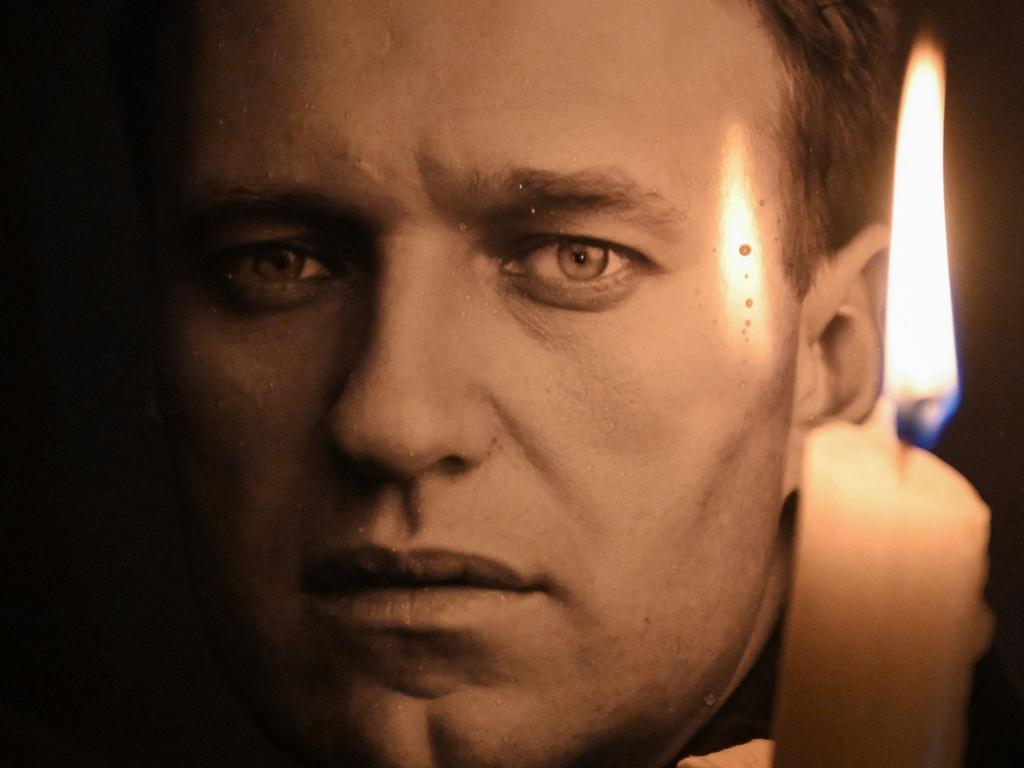
There were also signs that someone in the jail tried to resuscitate Navalny before he died as there was bruises on his chest consistent with CPR having been performed.
The paramedic added: “They still tried to resuscitate him, and he died, most likely, from cardiac arrest. But why this happened, no one is saying anything yet.”
Russia gave the official cause of death as “sudden death syndrome”, said Mr Navalny’s family and lawyer.
Details of his death are scant.
Two minutes after he died at 2.17pm Russia’s prison service put out a statement revealing his passing.
Four minutes later, a Telegram channel run by the Kremlin claimed he had died of a blood clot, and just seven minutes later Kremlin spokesman Dmitry Peskov addressed the media.
US AMBASSADOR TO MOSCOW VISITS NAVALNY SHRINE
The US ambassador to Moscow visited a makeshift shrine to Alexei Navalny, as Russian authorities suppressed memorials and tributes to the late opposition leader.
Rights groups say police have detained over 400 people at gatherings for the politician.
Ambassador Lynne Tracy was pictured on Sunday at the Solovetsky Stone, a monument to political repression that has become a major site of tributes for Mr Navalny.

“Today at the Solovetsky Stone we mourn the death of Alexei Navalny and other victims of political repression in Russia,” the US embassy in Moscow said on social media.
“We extend our deepest condolences to Alexei Navalny’s family, colleagues and supporters. His strength is an inspiring example. We honour his memory,” it said.
At a separate makeshift memorial known as the “Wall of Grief”, a bronze monument to Soviet-era repression, police had set up fences in a bid to ward off mourners.
Several dozen police officers could be seen standing nearby, but some people were allowed to enter through the fence and lay flowers, an AFP reporter saw.
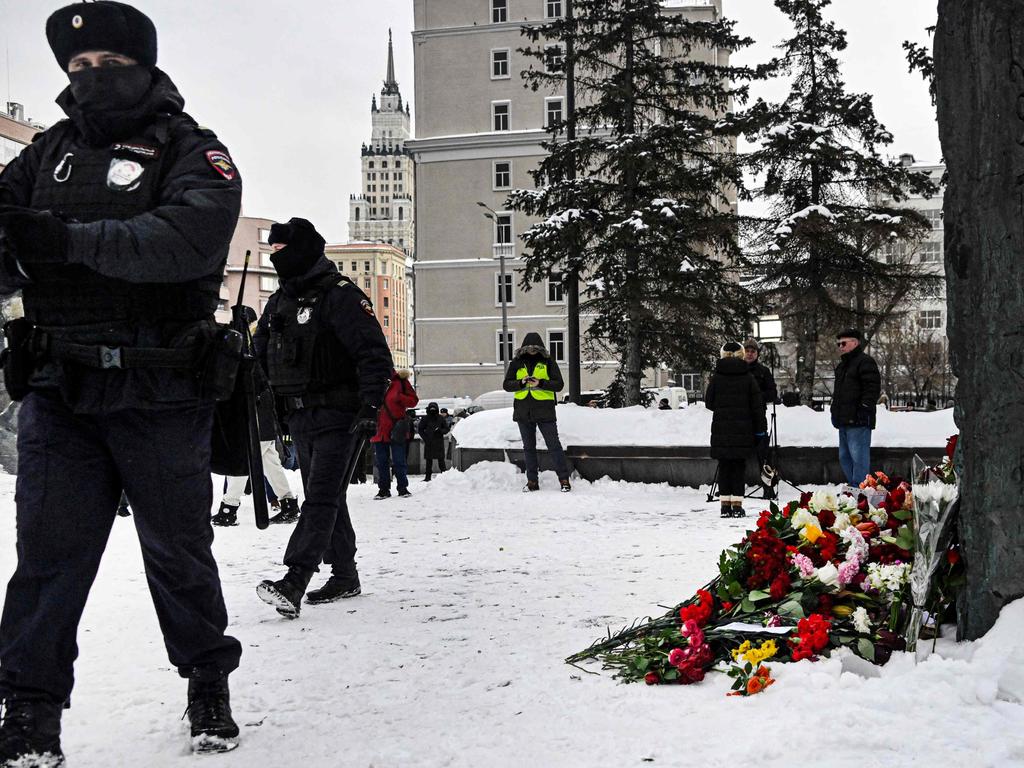
RUSSIA’S SHOCK MOVE OVER NAVALNY’S DEATH
Alexei Navalny’s supporters have accused Russian authorities of being “killers” who were “covering their tracks” by refusing to hand over his body, as the Kremlin stayed silent despite Western accusations and a flood of tributes to the late opposition leader.
His death deprives Russia’s opposition of its figurehead just a month before elections poised to extend President Vladimir Putin’s grip on power.
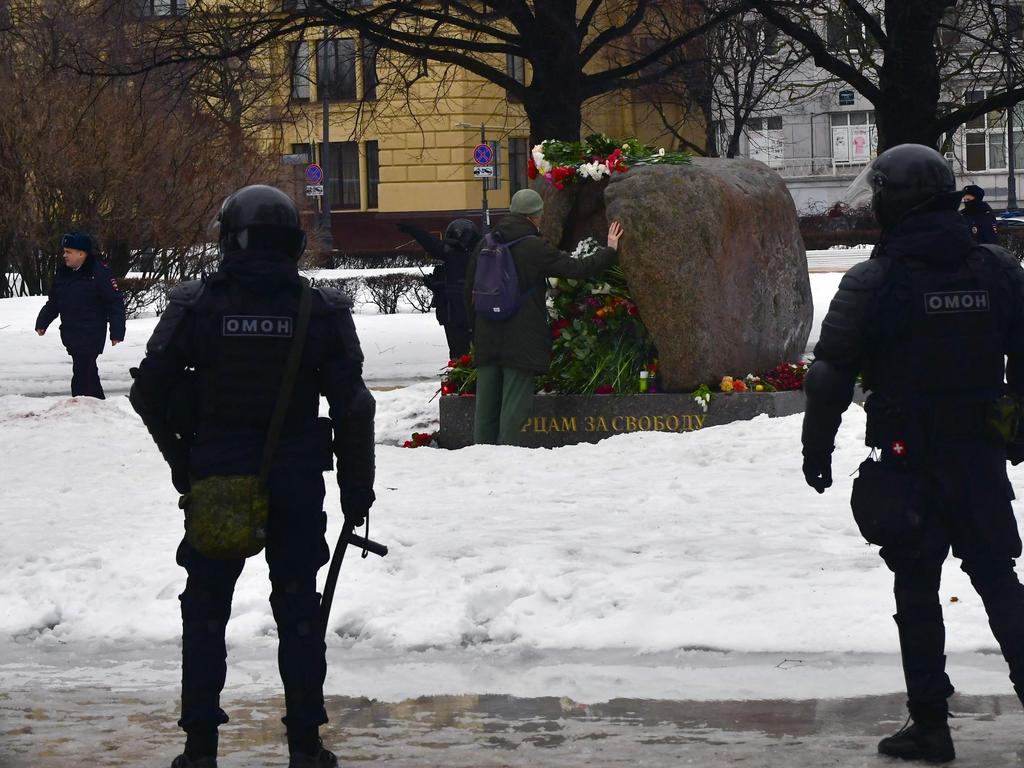
On Saturday, Mr Navalny’s mother and his lawyer were refused access to his body after arriving at the remote Siberian prison colony where he had been held, his spokeswoman Kira Yarmysh said.
“It’s obvious that the killers want to cover their tracks and are therefore not handing over Alexei’s body, hiding it even from his mother,” Mr Navalny’s team said in a post on Telegram.
“They don’t want whatever method they used to kill Alexei to come out,” Ms Yarmysh said in an online broadcast, in his backers’ strongest accusation yet of foul play.
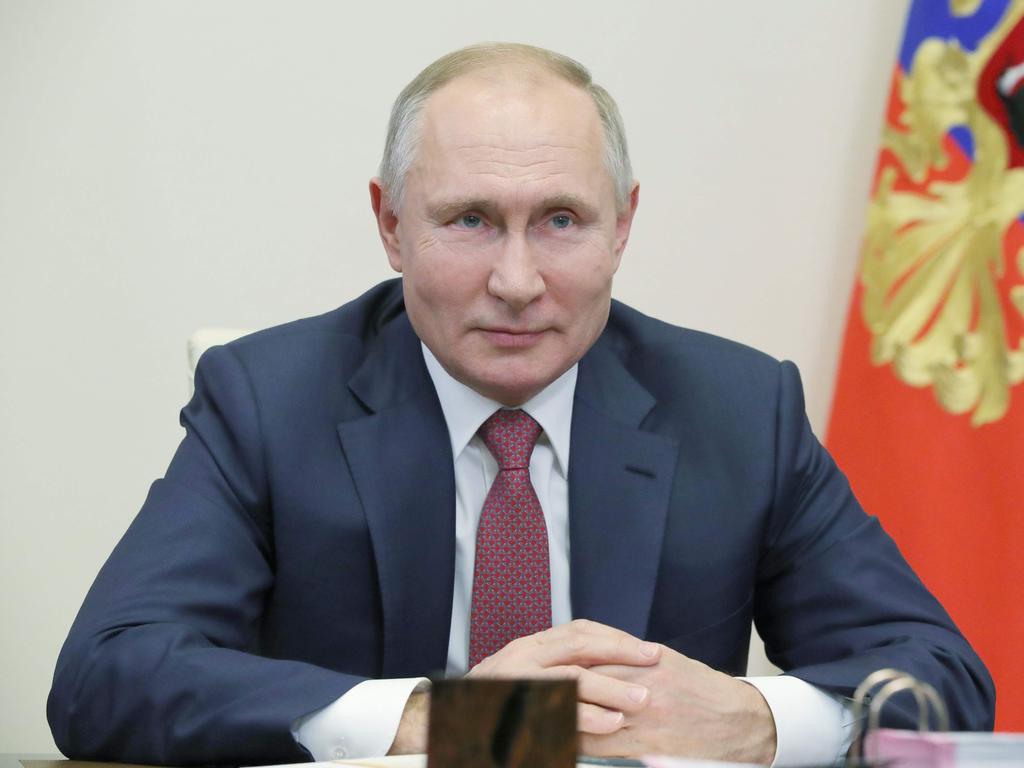

Across the country, Russian police on Saturday moved swiftly to break up small protests in honour of the Kremlin critic, arresting more than 400 people in 36 cities, the OVD-Info rights group said.
“Alexei Navalny’s death is the worst thing that could happen to Russia,” said one note left among the flowers at a makeshift memorial in Moscow.
After initially pushing back at accusations they were to blame, there was no comment from the Kremlin on his death on Saturday, despite an angry chorus of condemnation from Western leaders.
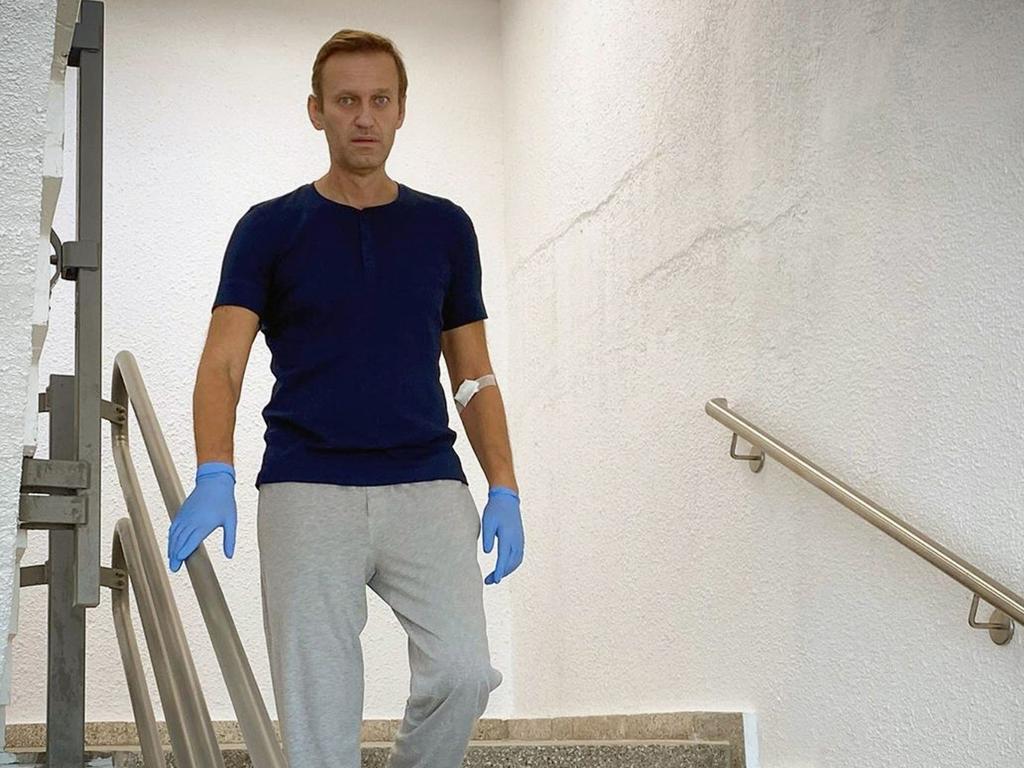
G7 foreign ministers meeting in Munich held a minute’s silence for the leader on Saturday, while US President Joe Biden explicitly blamed Mr Putin.
Mr Putin, 71, has not commented.
In the past, on the rare occasions when he has been asked about his most vocal critic, the Russian leader famously avoided saying Navalny’s name.
Speaking at the Munich Security Conference hours after news of her husband’s death, Yulia Navalnaya said Putin and his entourage would be “punished for everything they have done to our country, to my family and to my husband”.
She called on the international community to “unite and defeat this evil, terrifying regime”.
Russian Nobel Peace Prize winner Dmitry Muratov said Mr Navalny’s death was “murder” and that he was “tortured and tormented” for three years in prison.
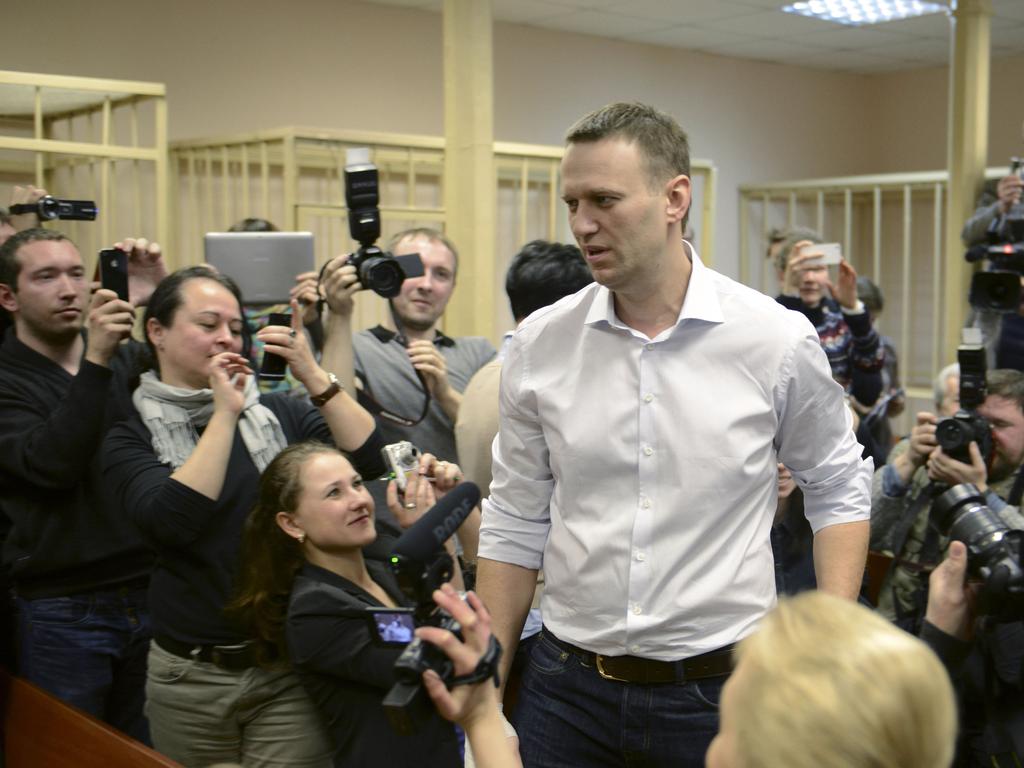
Mr Navalny, who led street protests for more than a decade, became a household name through his anti-corruption campaigning and electric charisma.
His exposes of official corruption, posted on his YouTube channel, racked up millions of views and brought tens of thousands of Russians onto the streets, despite harsh anti-protest laws.
He was jailed in early 2021 after returning to Russia from Germany, where he was recovering from a near-fatal poisoning attack with Novichok, a Soviet-era nerve agent.
A subsequent investigation by his team and several media outlets said a Russian FSB hit squad was behind the attack.
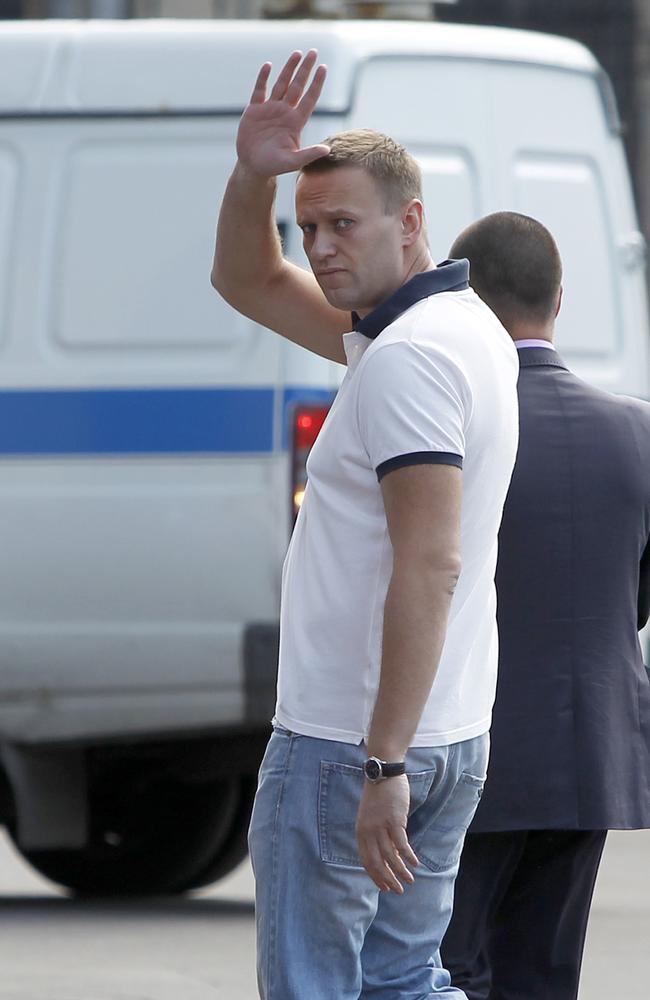
Upon his return he was hit with a barrage of charges, including a 19-year prison sentence for “extremism”, widely condemned by rights groups and seen in the West as retribution for his opposition to the Kremlin.
His decision to go back despite knowing he would face jail brought him global admiration.
“I’m not afraid and I call on you not to be afraid,” he said in an appeal to supporters as he landed in Moscow, moments before being detained.
Late last year, Navalny was moved to a remote Arctic prison colony nicknamed “Polar Wolf” in Russia’s Yamalo-Nenets region in northern Siberia.
He said in January that his daily routine included prison walks in freezing temperatures.
Since being jailed, he spent more than 300 days in solitary confinement, where prison authorities kept him over alleged minor protocol infringements.
In a documentary filmed before he returned to Russia, Navalny was asked what message he wanted to leave to the Russian people should he die or be killed.
“Don’t give up. You mustn’t, you can’t give up,” he said.
“All it takes for evil to triumph is for good people to do nothing. Therefore, don’t do nothing.”
ARRESTS AT NAVALNY MEMORIALS
Russian police detained more 100 people at spontaneous memorials on for Alexei Navalny, according to rights group OVD-Info.
As of February 17, “more than 101 people have already been detained in 10 cities” including 11 in the capital Moscow, OVD-Info said.
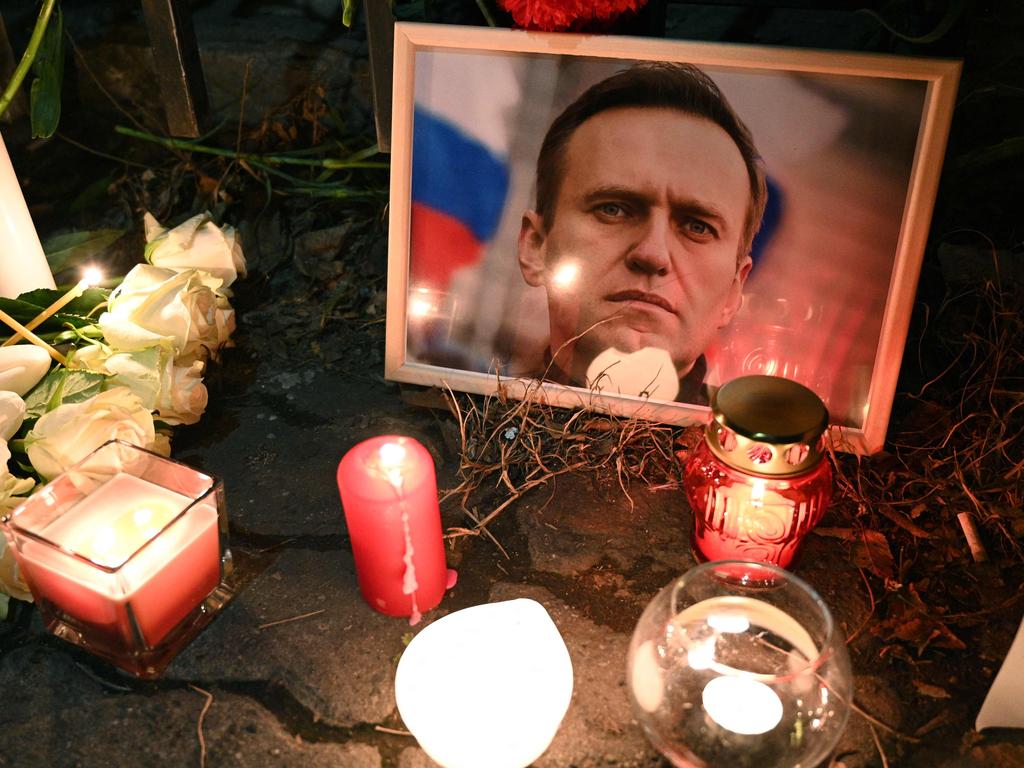
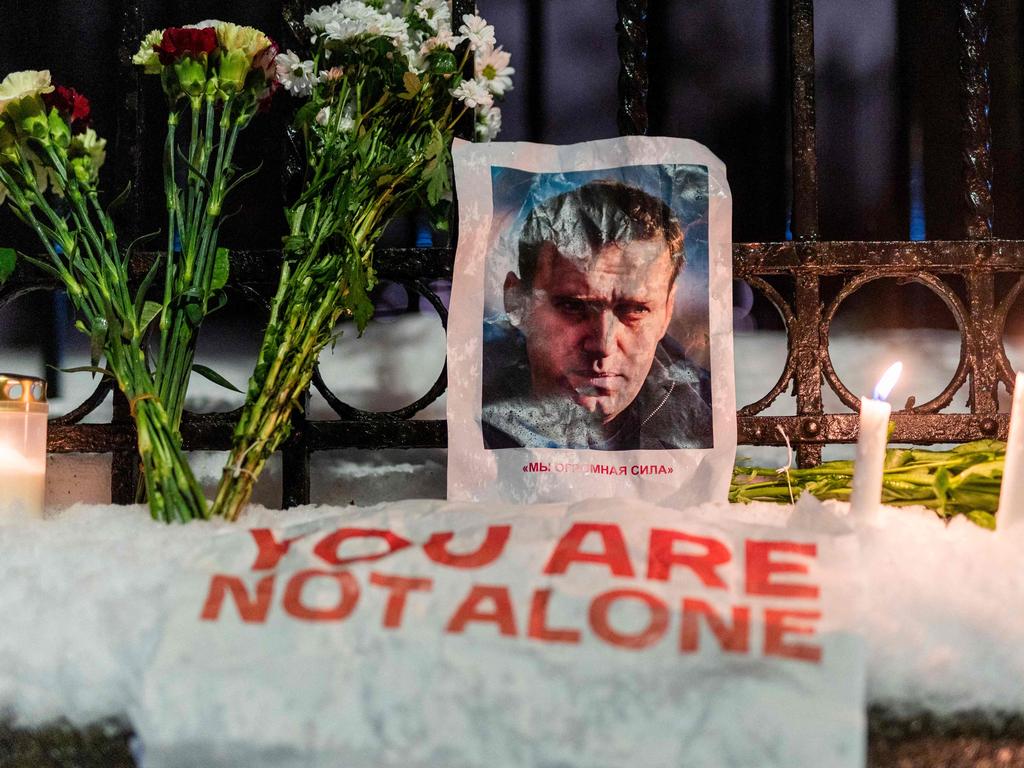
It came as Moscow authorities warned the public against taking part in any protests, with videos shared online showing dozens of Russians laying flowers at monuments to victims of political repression in different Russian cities.
At least one person was detained for holding up a placard that appeared to say “murderers” in a video posted by the independent Sota Telegram channel.

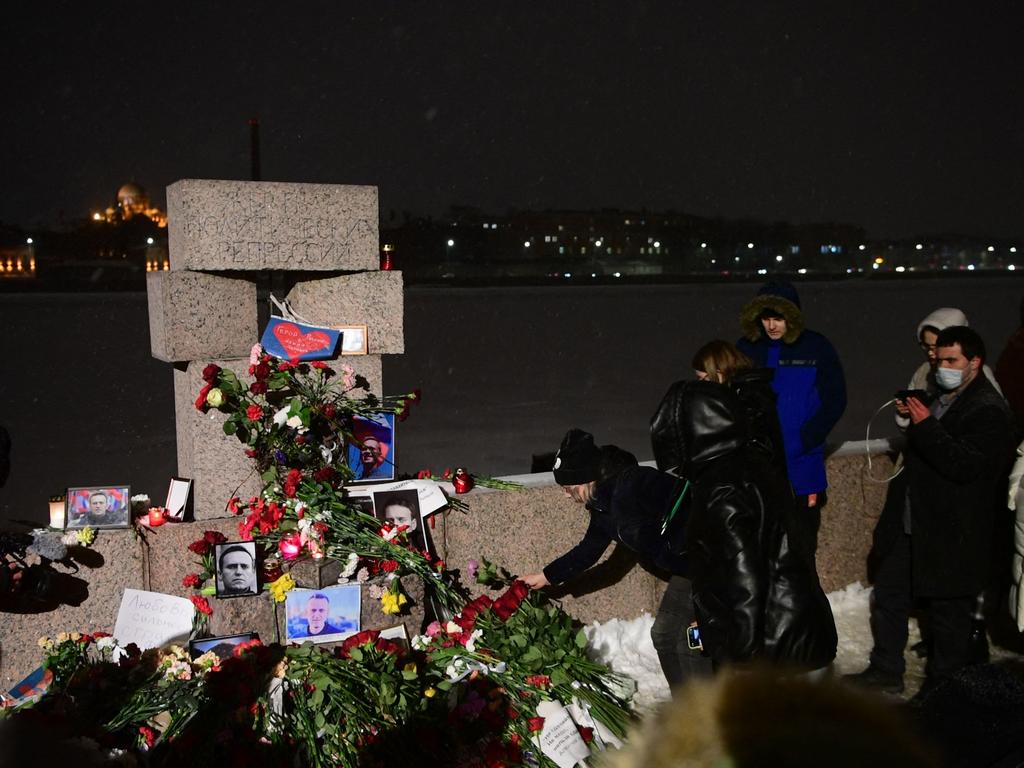
ALBO REACTS
Australian political leaders joined western nations in blaming Mr Putin for the death of Mr Navalny.
“We hold Vladimir Putin and the Russian regime responsible for his death in prison,” Australian Prime Minister Anthony Albanese said.
“Vladimir Putin is an authoritarian, and we have a divide in the world between authoritarian regimes and democracies.”
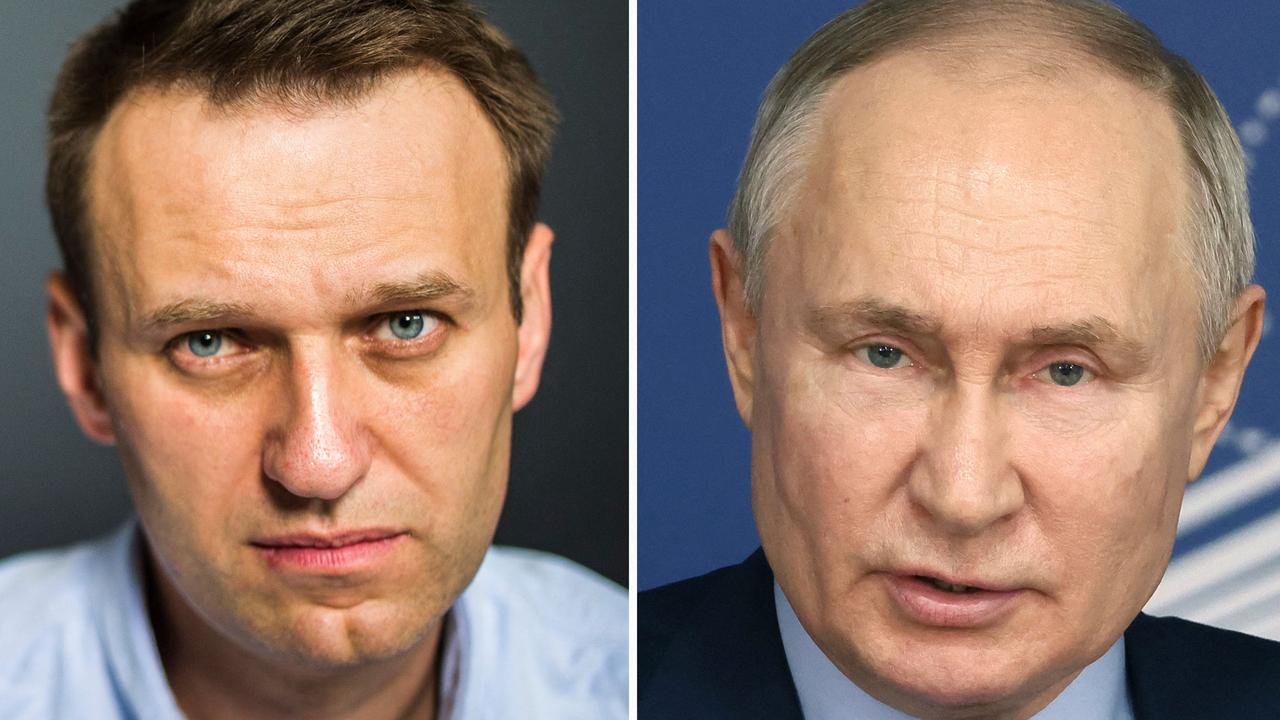
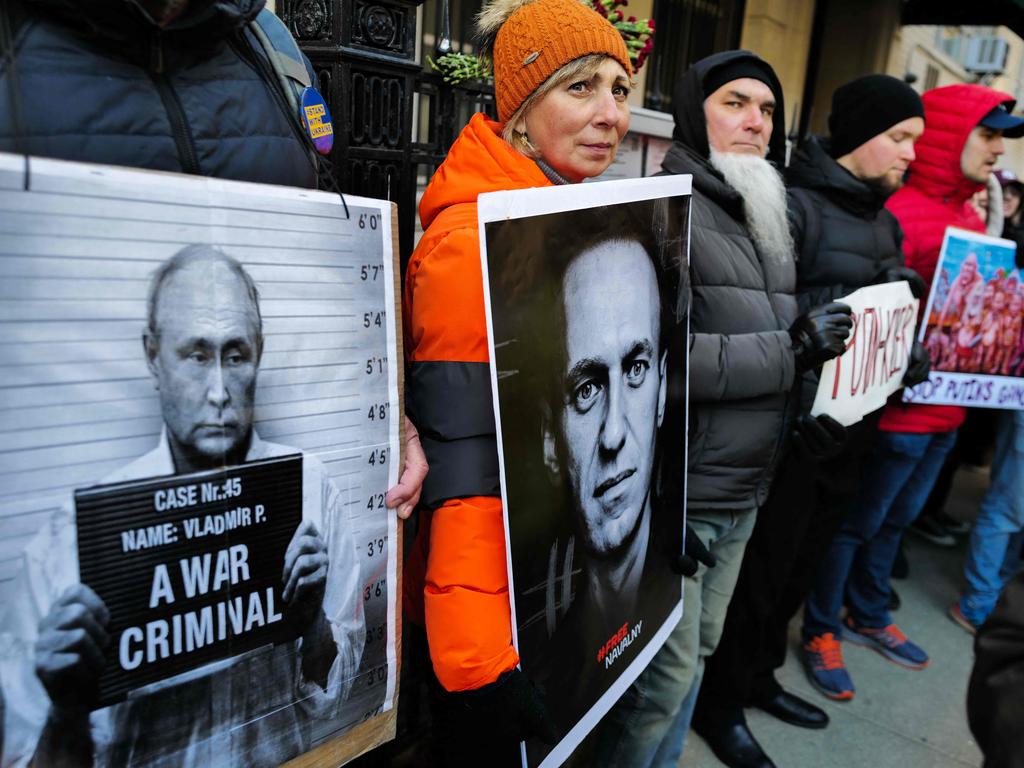
On X, formerly Twitter, Mr Albanese said Australia “mourns the tragic death of Alexei Navalny, a courageous force for democracy in Russia”.
“His treatment was unforgivable, and our thoughts are with his family and the people of Russia,” he said in the social media post.
Australia mourns the tragic death of Alexei Navalny, a courageous force for democracy in Russia. His treatment was unforgivable, and our thoughts are with his family and with the people of Russia.
— Anthony Albanese (@AlboMP) February 17, 2024
Opposition leader Peter Dutton shared similar thoughts, describing Mr Navalny as a “very brave man … who sought to save his country from a murderous dictator”.
“He (Mr Navalny) had been poisoned, tortured and wrongly imprisoned. Ultimately he gave his life for a country and people he loved. And his passing should be mourned,” Mr Dutton said on X.
Foreign Minister Penny Wong described Mr Navalny as “inspiring”.
“His resistance, his opposition to a repressive regime was inspiring to so many people around the world, and we make clear we hold the Russian government solely responsible for his treatment and his death,” Ms Wong said.
Kremlin spokesman Dmitry Peskov accused Western leaders of “absolutely unacceptable” and “hysterical” reactions to Navalny’s death.
Earlier, US President Joe Biden said: “Make no mistake, Putin is responsible for Navalny’s death”.
“Even in prison, he was a powerful voice for the truth,” Mr Biden said from the White House.
“Alexei Navalny was tortured and tormented for three years … Murder was added to Alexei Navalny’s sentence,” Russian Nobel Peace Prize winner Dmitry Muratov said.
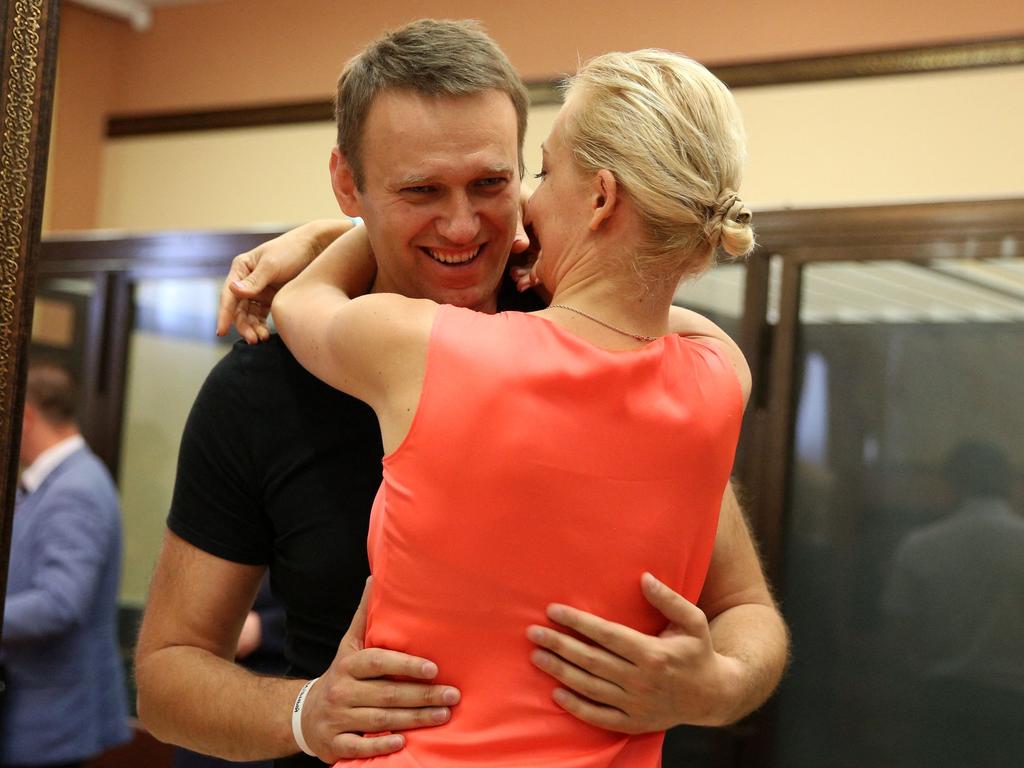
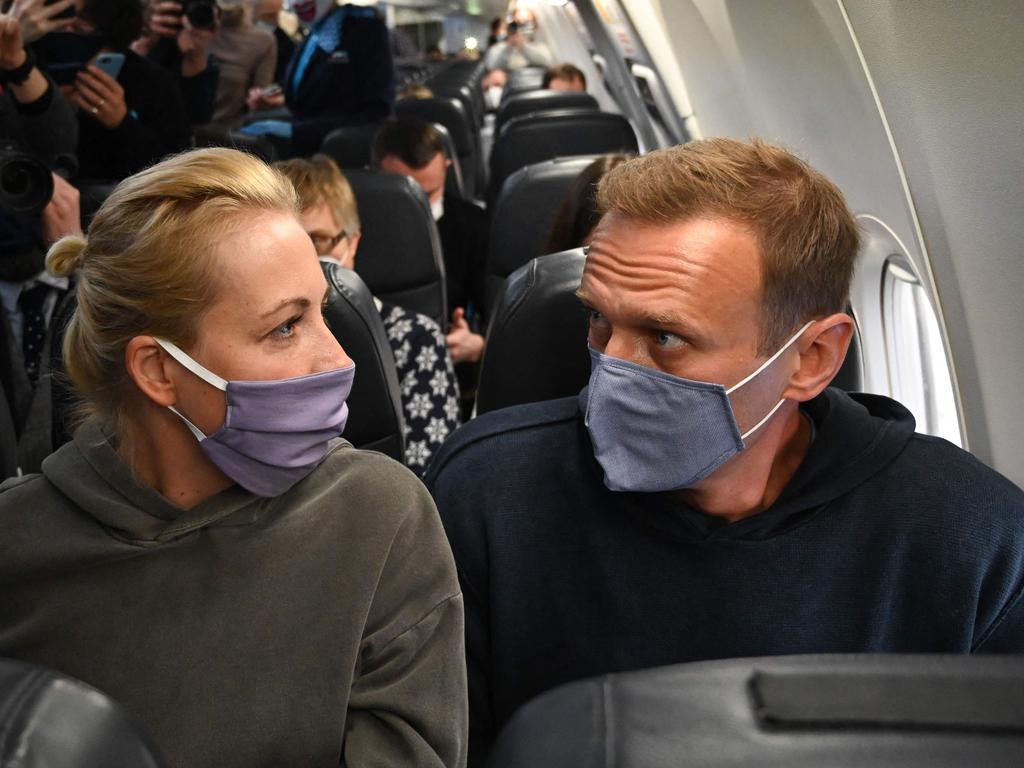
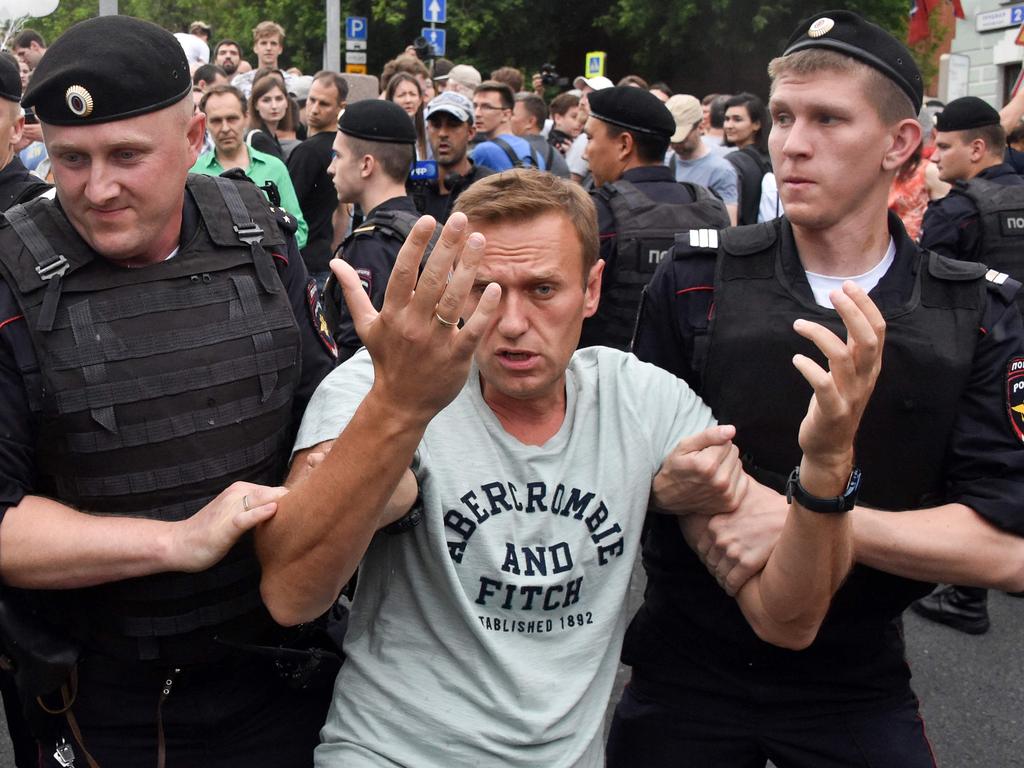
Just days before his death, Mr Navalny sent wife Yulia a Valentine’s Day message.
What may have been his last message to her read: “Baby, everything is like in a song with you: between us there are cities, the takeoff lights of airfields, blue snowstorms and thousands of kilometres.
“But I feel that you are near every second, and I love you more and more.”
– with AFP
More Coverage
Originally published as KGB ‘one punch’ tactic killed Russian opposition leader Alexei Navalny, human rights activist claims
Read related topics:Russia & Ukraine Conflict




